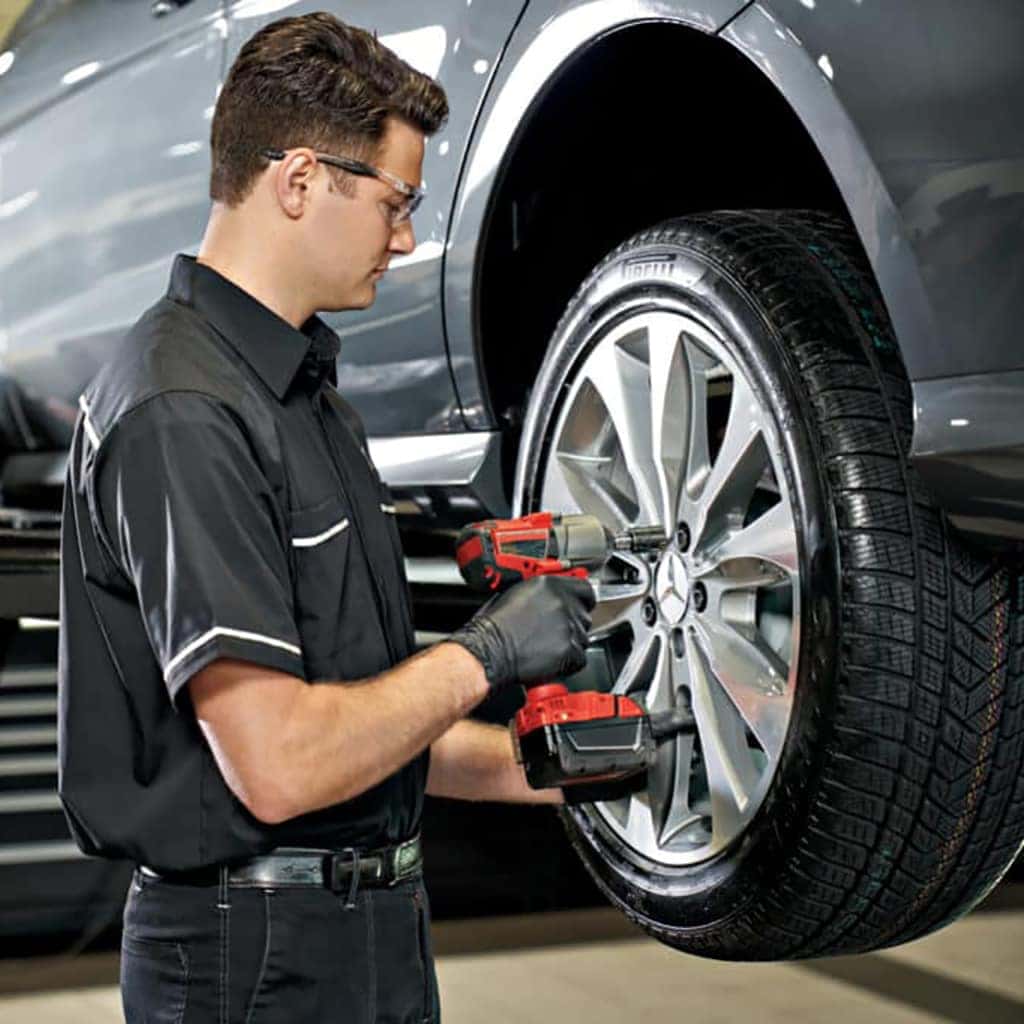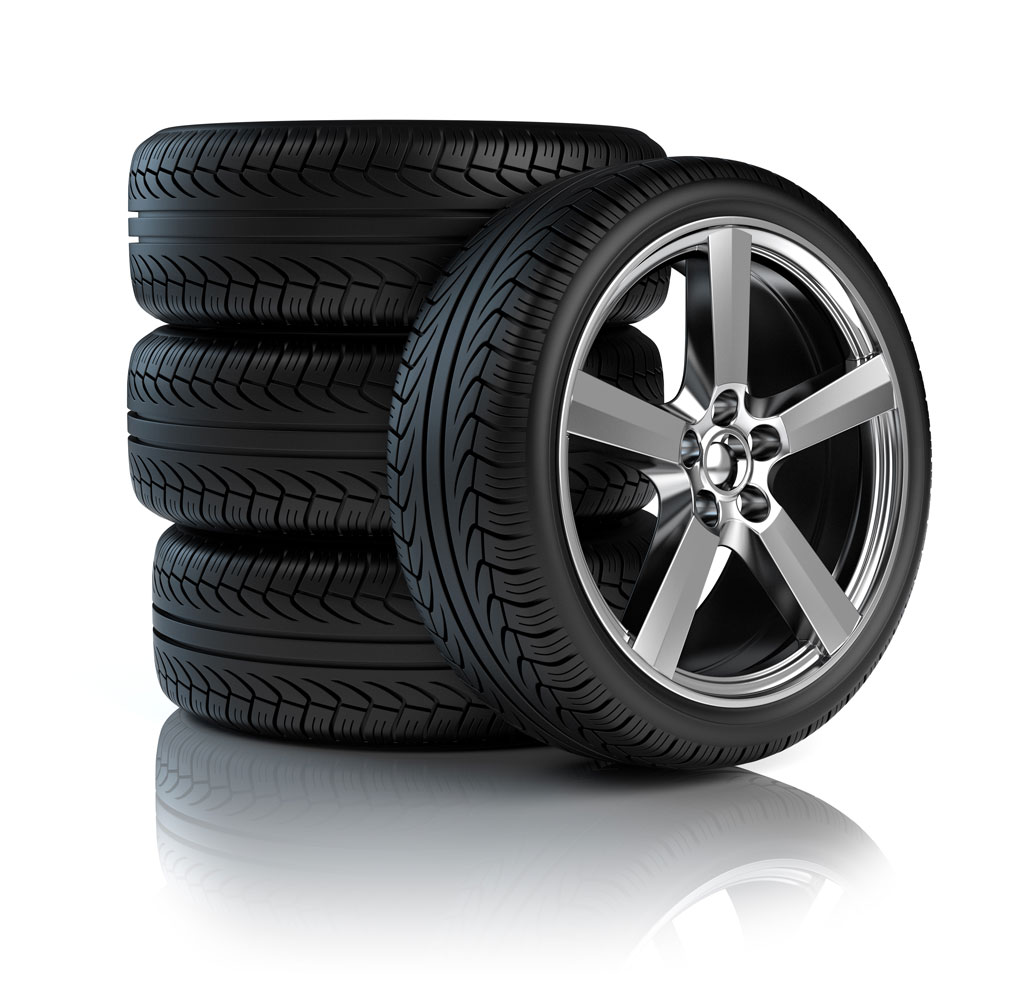Unlock Performance: Expert GMC Tire Service at Morris Tires
Unlock Performance: Expert GMC Tire Service at Morris Tires
Blog Article
Tire Service: The Influence of Weather
When it comes to ensuring optimal performance and safety and security on the road, understanding the effect of weather condition conditions on tire solution is essential. GMC Tire Service. In this discussion, we will certainly explore the elaborate relationship between climate problems and tire service, losing light on the importance of weather-specific tire maintenance techniques and factors to consider.
Warm and Tire Efficiency
When exposed to high temperature levels, tires experience changes in efficiency that can significantly influence automobile safety and security and handling. The warmth produced from extended driving or heat problems creates the tire rubber to soften, leading to minimized walk life and enhanced wear. As the rubber ends up being softer, the tire's grip when driving diminishes, impacting braking distances and total grip. In severe situations, too much warmth can also cause tire blowouts, presenting an extreme security threat to the automobile and its owners.

Cold Climate Effects
Winter conditions can have a substantial influence on tire performance and safety and security. As temperature levels drop, tire rubber can solidify, leading to decreased grip on icy or snow-covered roads. In chilly weather, tires might likewise lose atmospheric pressure much more rapidly, which can affect taking care of and fuel effectiveness. Furthermore, cool temperatures can create tire sidewalls to tense, boosting the risk of damage from gaps or other roadway threats.
To alleviate the impacts of winter on tires, it is critical to frequently examine tire pressure and inflate them to the producer's advised levels. Utilizing wintertime or all-season tires made for chilly climate conditions can also improve traction and hold on icy or snowy roads. Appropriate tire maintenance, consisting of regular inspections for wear and damages, becomes also extra crucial throughout cooler months to ensure optimum efficiency and safety and security.
Rainy Conditions Impact
Tires with worn-out footsteps are extra prone to hydroplaning, where a layer of water constructs up between the tire and the roadway surface, leading to loss of traction. To battle this, drivers need to consistently examine their tires for ample step depth and consider spending in tires specifically made for wet problems.
Additionally, stormy climate can also reduce presence, making it challenging for drivers to see the roadway in advance clearly (GMC Tire Service). In such conditions, it is crucial to readjust driving speeds accordingly and keep a secure adhering to range to enable unexpected stops. Correctly inflated tires can also aid in preserving control on wet roadways by giving far better handling and grasp
Snow and Tire Safety
Snow-covered roads position unique obstacles for chauffeurs, highlighting the relevance of appropriate tire selection and upkeep. When driving in snowy conditions, having the right tires can make a significant distinction in safety and security and performance. Wintertime tires are designed with special click to find out more rubber substances and step patterns to offer far better traction on snow and ice compared to all-season tires. The much deeper footsteps and sipes of winter season tires assist grip the road better, lowering the risk of sliding and moving.

In addition, vehicle drivers must think about installing tire chains in severe snowy conditions. Tire chains provide added grip by gripping the snow and ice, boosting stability and control. However, it is necessary to follow maker guidelines when utilizing and setting up tire chains to protect against damages to the tires and car. By selecting the ideal tires, maintaining appropriate rising cost of living, and considering added traction help like tire chains, chauffeurs can boost their safety when navigating snow-covered roadways.
Weather-Related Tire Upkeep
When faced with numerous climate condition, appropriate tire maintenance ends up being a vital aspect of vehicle security and performance. Weather-related tire upkeep incorporates a variety of methods intended at making sure optimum tire feature and durability in different climate situations. One crucial aspect of weather-related tire maintenance is tire pressure regulation. Fluctuating temperature levels can create tire stress to differ, affecting grip and gas performance. Regularly readjusting and examining tire pressure according to producer recommendations is essential for risk-free driving in like it transforming climate condition. Furthermore, tire tread deepness plays a considerable role in dealing with various climate aspects. Tires with adequate tread deepness give much better hold on wet or icy roads, lowering the risk of hydroplaning or skidding. When tread wear reaches a particular deepness is important for preserving grip and stability in adverse climate, inspecting tire walk consistently and replacing tires. By prioritizing weather-related tire upkeep, drivers can boost safety and security, boost car performance, and extend the lifespan of their tires.
Conclusion
In final thought, weather problems have a significant effect on tire performance and safety and security. From warm influencing tire stress and put on to chilly weather condition reducing grip, it is essential to take into consideration the weather when keeping and using tires.
In this conversation, we will check out the complex partnership between climate conditions and tire service, dropping light on the value of weather-specific tire upkeep techniques and considerations.

Report this page